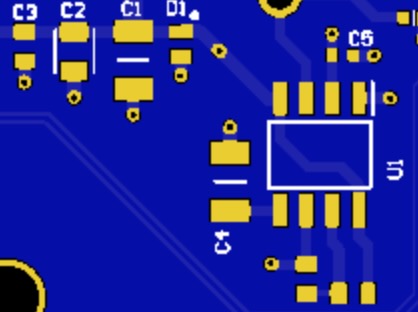Exact Measurement? For Innovation, and Progress
A coherence-based Noise Reduction System, approaches a time-independent reference, or exact standard, for the measurement of time. Download summary of scientific research here.
A Universal Chip To Catalyze
Further Innovation And Development

Areas of Application of Coherence Technology Pdf download here: https://www.upgradingtechnology.com/support-files/areasofapplication.pdf
Today, we are living in the age of ubiquitous computing where chips or microcontrollers are present in almost all electronic devices we use on a daily basis. These small but powerful devices, known as microprocessors, are used in a wide variety of applications, ranging from simple gadgets like calculators and digital watches to sophisticated systems like computers, servers, and smartphones.
These microprocessors can be programmed to do almost anything one can imagine, making it possible for any tech-savvy individual or company to build their own device. Want to build a smartphone? No problem, just get a microcontroller chip designed for smartphones, install the necessary software and voila! Your smartphone is ready. Similar things can be done if you want to build a computer or a server.
However, while these chips can perform a vast range of tasks, each is generally designed to perform a specific function. Therefore, the performance of any electronic system can be improved significantly if a universal chip that can enhance the effectiveness of all electronic systems could be developed.
One way this can be achieved is by designing a chip that reduces measurement uncertainty, which would in turn improve the accuracy and precision of the timing in every electronic system. Currently, every electronic system uses a timing mechanism for synchronization, data transmission, and a host of other operations. Reducing the timing error will therefore significantly boost the performance of all these systems.
A chip like this would be a game changer, revolutionizing the electronics industry in a very fundamental yet profound way. This innovation would create an avenue for groundbreaking advancements in various sectors including communication, healthcare, automotive, aerospace, and more.
The possibilities would be endless. Faster data transfer rates would be achievable, paving the way for improved high-speed communication systems. With increased precision in timing, automated systems would be more accurate and reliable, bringing about advancements in sectors like self-driving cars and industry automation.
In a nutshell, while the array of specialized chips we have now have catalyzed the evolution of technology in unprecedented ways, a universal chip that can improve the effective and efficient functioning of all electronic systems would take this evolution to new and unimaginable heights. The development of such a chip, though challenging, could unlock new frontiers in technology, catalyzing further innovation and development.
